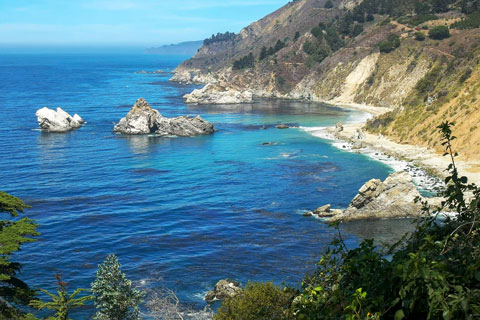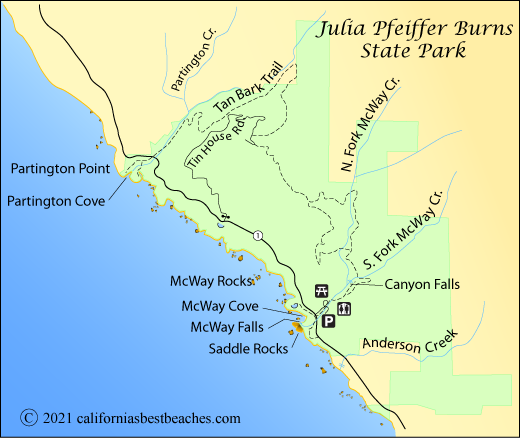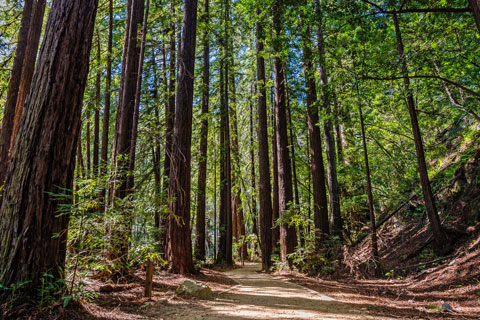Julia Pfeiffer Burns
State Park
Julia Pfeiffer State Park is best known for McWay Falls, which can be viewed from an accessible observation point at the end of a quarter mile long trail from the parking lot. Stunning McWay Falls plunges 80 feet from the hillside into the ocean.
Less well known at the park are miles of trails climbing nearly 3,000 feet above the rugged shoreline and rewarding hikers with breathtaking vistas of the area. The entire park contains about 4 square miles of forest and coastland.
The park has two walk-in environmental campsites near the falls which are in high demand. Both McWay Fall and the beach at McWay Cove are off limits. Scuba diving is allowed at Partington Cove with a permit.
Park Entry Fees
There is no ranger on duty at the park. Big Sur Station, several miles north on Highway 1, serves as a resource for visitors to Julia Pfeiffer Burns State Park. The $10 entrance fee is paid at a self-pay station located alongside the road soon after you enter the park. State Park entrance fees are good that same day for any other state park with the same or less entrance fee, e.g. Pfeiffer Big Sur State Park or Molera State Park.

Julia Pfeiffer Burns State Park
Early Residents
Julia Pfeiffer Burns was only a baby when her family arrived in Big Sur in 1869. She worked on her parents' farm until 1915 when she married John Burns and moved to Burns Creek. Up the coast Christopher McWay homesteaded the land that today is the heart of the park. The land was later purchased by the Brown family. In 1961 Helen Hooper Brown donated the property to the state for a park, indicating that it should be named in honor of pioneer Julia Pfeiffer Burns.
Flora and Fauna
Old-growth and second-growth coast redwoods extend down the Big Sur coast to within 100 yards of the rocky shore. Seabird colonies nest along the coast or close off-shore. The park provides habitat for endangered birds such as bald eagles, California brown pelicans, and California condors. Along the coast sea otters are often spotted among the kelp forests.
Among the larger mammals sighted on rare occasions inland are raccoons, bobcats, mountain lions, and even skunks.


